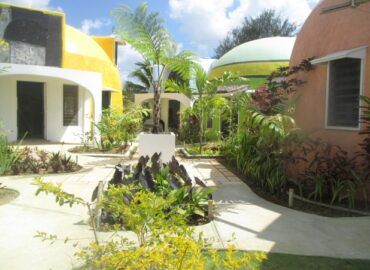Partnership building becomes too important for VIPA

Flows to transition economies more than halved reaching US$45 billion as regional conflict, sanctions on the Russian Federation, and negative growth prospects deterred foreign investors (especially from developed countries) from investing in the region.Developing economies saw their FDI reaching a new high of more than US$700 billion, 4% higher than 2013, with a global share of 56%. At the regional level, flows to developing Asia were up; those to Africa remained flat, while FDI to Latin America declined.
Flows to transition economies more than halved reaching US$45 billion as regional conflict, sanctions on the Russian Federation, and negative growth prospects deterred foreign investors (especially from developed countries) from investing in the region.Developing economies saw their FDI reaching a new high of more than US$700 billion, 4% higher than 2013, with a global share of 56%. At the regional level, flows to developing Asia were up; those to Africa remained flat, while FDI to Latin America declined.
Investment promotion today is not only increasingly sophisticated, but it is also becoming very highly competitive. That is why investment promotion agencies (IPAs) are constantly searching for best options to be able to attract and win FDIs in this competitive environment.
Apart from the many promotional options available, IPAs have taken steps to focus on introducing and implementing internal systems to enable consistent, speedier and good facilitation roles in order to present high quality first impression offers to investors. Further, IPAs falling behind current technology developments are more likely to perform poorly in convincing potential investors to invest in their locations.
The Vanuatu Investment Promotion Authority (VIPA) today cannot be described as ready or serious to create a positive impression in promoting Vanuatu as an ideal investment location. Investment Facilitation /Servicing – a role which VIPA considers as having a comparative advantage in is falling way below expectation in undertaking it.
VIPA’s processing timeframe of foreign investment certificate remains at 15 working days, although there is strong evidence that this can be further improved. Current handling of data flow remains a manual process which currently believed the key contributing factor to the slowness and inconsistent reporting. VIPA’s current ICT infrastructure clearly demonstrates moving from manual to automation (of most processes) is possible. And handling of investors’ inquiry, regarded by most IPAs as the most critical factor for creating positive first impression to potential investors is poorly managed.
VIPA is currently maintaining a MS Access Database with very few functionalities for staff to use and outputs are very limited. Because it is a desk top application, access is restricted to only one staff. This MIS will see VIPA shift to a server-based application where all staff can have access to and allowing them to develop custom reports for specific purposes.
By having in place a well developed and managed information system that will contribute to improving VIPA’s internal mechanism will surely enhance the institution’s investment facilitation role. Achieving this will ultimately have a positive impact on the enabling business environment in Vanuatu.



